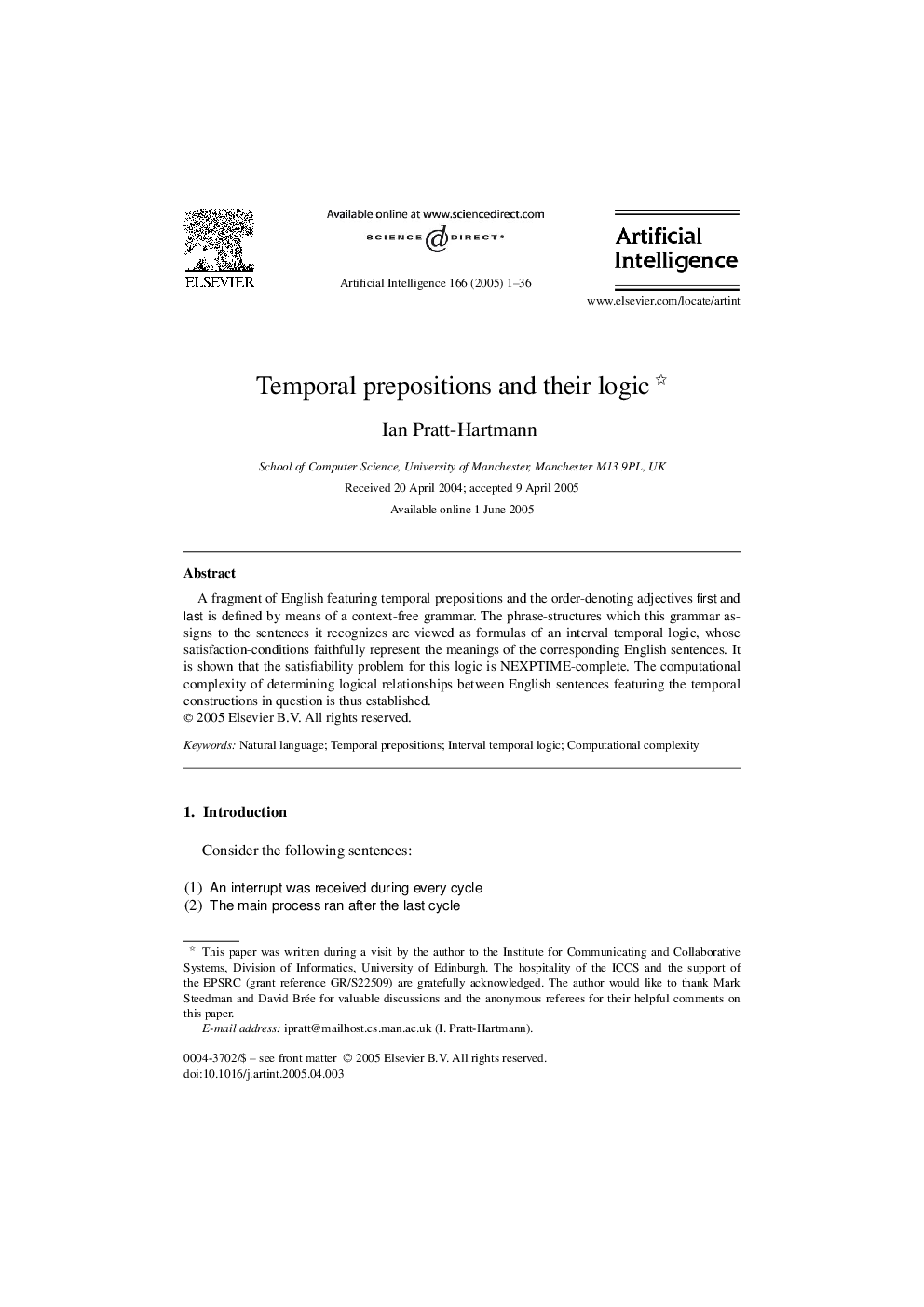| Article ID | Journal | Published Year | Pages | File Type |
|---|---|---|---|---|
| 9650010 | Artificial Intelligence | 2005 | 36 Pages |
Abstract
A fragment of English featuring temporal prepositions and the order-denoting adjectives first and last is defined by means of a context-free grammar. The phrase-structures which this grammar assigns to the sentences it recognizes are viewed as formulas of an interval temporal logic, whose satisfaction-conditions faithfully represent the meanings of the corresponding English sentences. It is shown that the satisfiability problem for this logic is NEXPTIME-complete. The computational complexity of determining logical relationships between English sentences featuring the temporal constructions in question is thus established.
Related Topics
Physical Sciences and Engineering
Computer Science
Artificial Intelligence
Authors
Ian Pratt-Hartmann,
